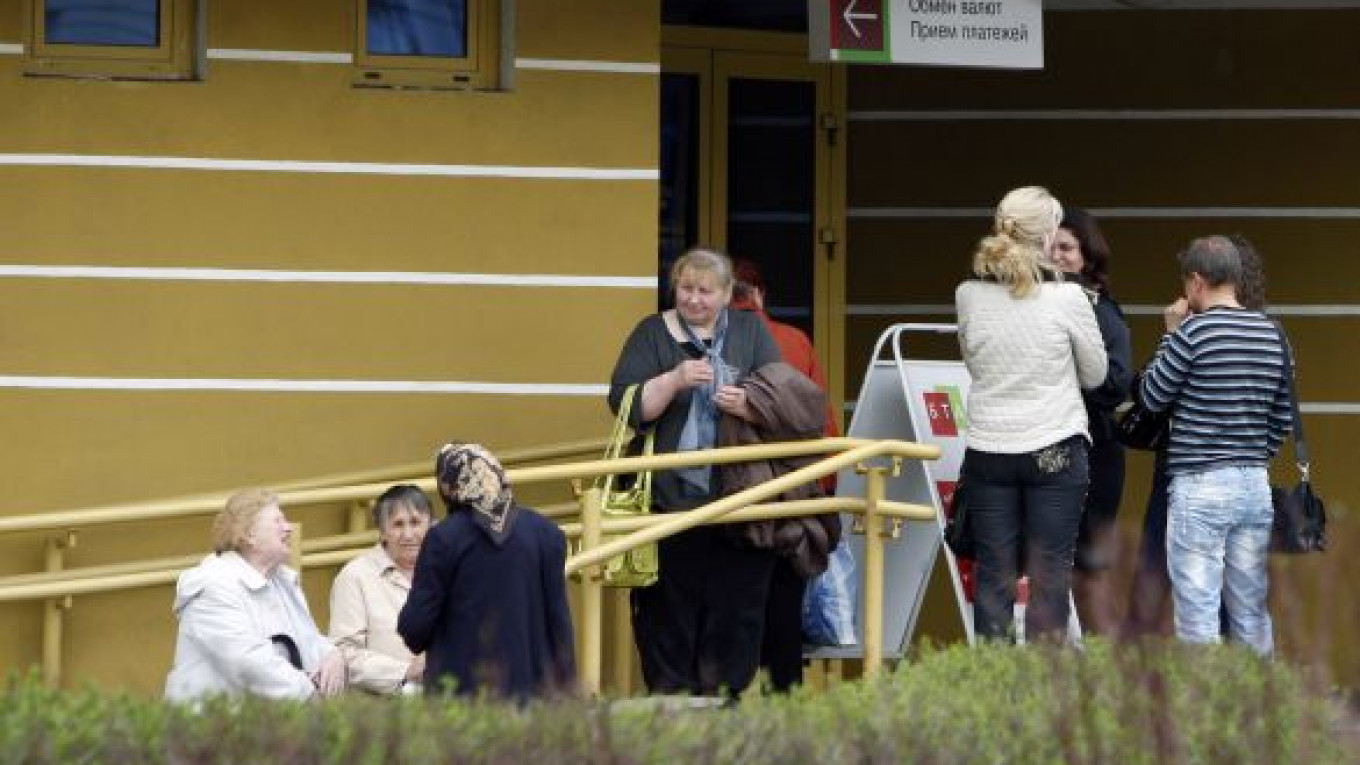Belarus has scrapped plans for a second trading session for the ruble, effectively abandoning efforts to run multiple exchange rates as it waits for Russian aid to stabilize the currency.
The move follows a de facto bar on the free float on the interbank market and appears to contradict advice from Russia, which Belarus hopes will lend it $3 billion to fight the currency crisis.
"Currently there is no need to introduce an additional session," The Belarussian central bank said in a statement.
Belarus introduced restrictions on foreign currency trading in March after losing a quarter of its reserves trying to support the ruble that has come under pressure due to large foreign trade deficit.
Last week, Belarus allowed banks to trade the ruble freely on the interbank market where the exchange rate quickly plunged to about 5,000 rubles per dollar compared with the official rate of 3,048 per dollar.
But two days later, according to market sources, the central bank recommended that banks trade the ruble at a rate no lower than 4,500 to 4,600 per dollar. Banks responded by refusing to trade at all.
Analysts say Belarus wants to support the ruble with Russian money to avoid significant devaluation. Belarussian Finance Minister Andrei Kharkovets said Tuesday that he expected a deal within a week.
"Basically, we've agreed on a list of the steps that will be implemented by the Belarussian side within the macroeconomic stabilization program," he told reporters.
However, Russia has indicated that it wanted to see exchange rate liberalization first.
On Monday, Russia's Central Bank First Deputy Chairman Alexei Ulyukayev said "a greater flexibility in forex policy" was needed in Belarus and a decision on the loan was yet to be made.
Andrei Bokarev, head of the Finance Ministry's department for international financial relations, said Tuesday that financial assistance could come to Belarus in two to three weeks.
The former Soviet republic will have to agree to a program that will help solve its current-account deficit in the "midterm," Bokarev told reporters.
"Russia won't give budget financing without conditions," he said. "We expect it will take two to three weeks to try to reach an agreement on the terms and conditions of such help.''
Meanwhile, Kharkovets said Tuesday that the government is planning to cut the national budget spending by 1.7 trillion Belarussian rubles, or about 4.3 percent.
The main cuts will affect the state's investment activities and production facilities equipment and reconstruction spending, as well as subsidies to budget-funded organizations.
The government is not yet ready to release its revised inflation forecast for 2011.
"We are computing the forecast and do not want to make a mistake. The indicator will depend on the extent to which the National Bank achieves a balanced exchange rate and the extent to which shrinkage in budget spending allows us to meet the GDP growth target," Economy Minister Nikolai Snopkov said at a briefing in Minsk on Tuesday.
Belarus had 1.9 percent inflation in March, following inflation of 2.7 percent in February and 1.4 percent in January, for a total of 6.1 for the first quarter of the year.
(Reuters, Bloomberg, Interfax)
A Message from The Moscow Times:
Dear readers,
We are facing unprecedented challenges. Russia's Prosecutor General's Office has designated The Moscow Times as an "undesirable" organization, criminalizing our work and putting our staff at risk of prosecution. This follows our earlier unjust labeling as a "foreign agent."
These actions are direct attempts to silence independent journalism in Russia. The authorities claim our work "discredits the decisions of the Russian leadership." We see things differently: we strive to provide accurate, unbiased reporting on Russia.
We, the journalists of The Moscow Times, refuse to be silenced. But to continue our work, we need your help.
Your support, no matter how small, makes a world of difference. If you can, please support us monthly starting from just $2. It's quick to set up, and every contribution makes a significant impact.
By supporting The Moscow Times, you're defending open, independent journalism in the face of repression. Thank you for standing with us.
Remind me later.






